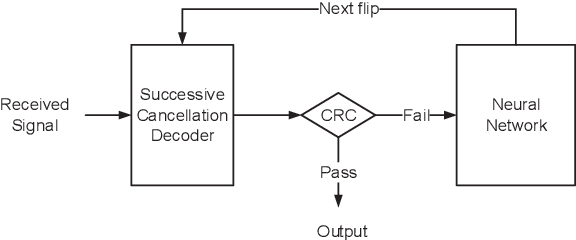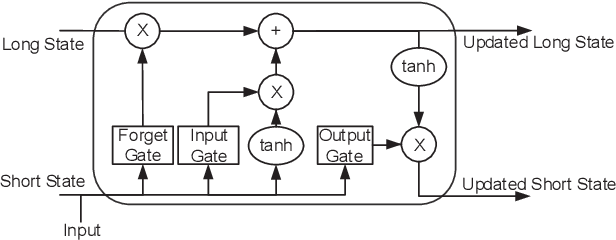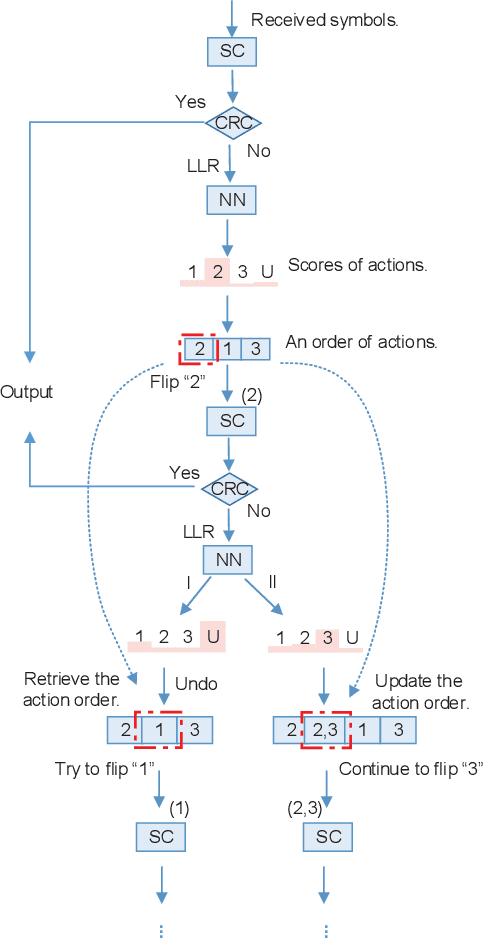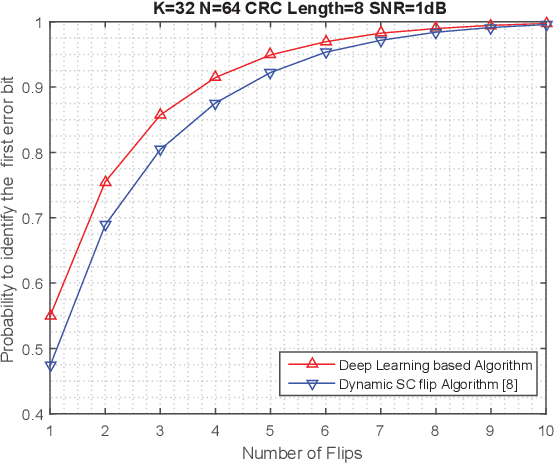Learning to Flip Successive Cancellation Decoding of Polar Codes with LSTM Networks
Paper and Code
Feb 25, 2019



The key to successive cancellation (SC) flip decoding of polar codes is to accurately identify the first error bit. The optimal flipping strategy is considered difficult due to lack of an analytical solution. Alternatively, we propose a deep learning aided SC flip algorithm. Specifically, before each SC decoding attempt, a long short-term memory (LSTM) network is exploited to either (i) locate the first error bit, or (ii) undo a previous `wrong' flip. In each SC attempt, the sequence of log likelihood ratios (LLRs) derived in the previous SC attempt is exploited to decide which action to take. Accordingly, a two-stage training method of the LSTM network is proposed, i.e., learn to locate first error bits in the first stage, and then to undo `wrong' flips in the second stage. Simulation results show that the proposed approach identifies error bits more accurately and achieves better performance than the state-of-the-art SC flip algorithms.
 Add to Chrome
Add to Chrome Add to Firefox
Add to Firefox Add to Edge
Add to Edge